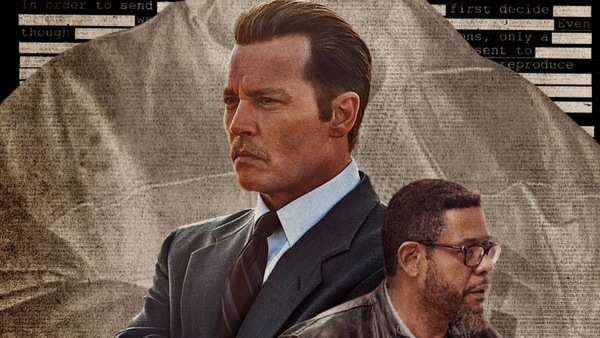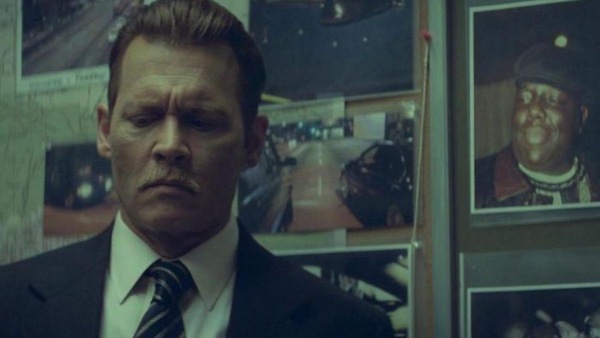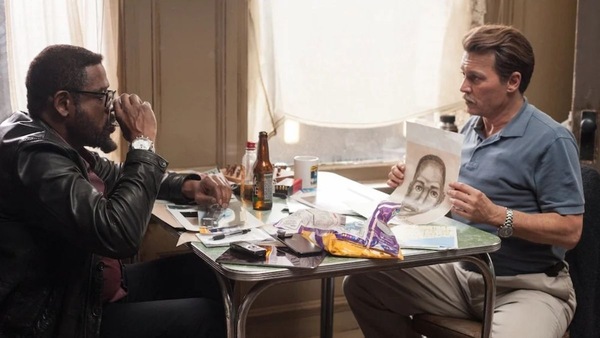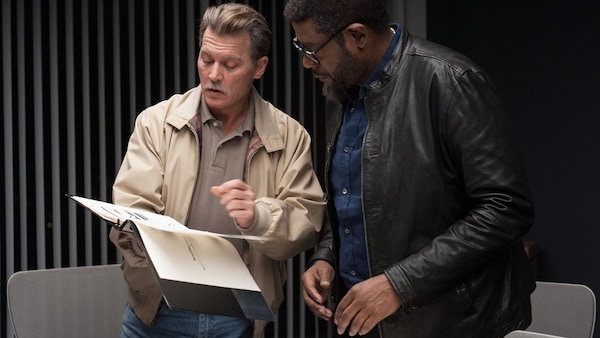City of Lies review: Johnny Depp, Forest Whitaker are insipid in a thriller sans emotional heft
City of Lies has sparks of intrigue and well-reasoned arguments, but for the most part, the movie seems to arrive at conclusions without providing the necessary context.

Last Updated: 07.48 AM, Nov 05, 2021
The premise of City of Lies is undoubtedly relevant. Corruptions in the highest echelons of bureaucracy or race-motivated crimes, none of it sounds like a far-flung conspiracy theory. Yet, City of Lies, which tries to uncover the mysteries around the murders of two of the most celebrated rappers of all time in 1997 — Tupac Shakur and The Notorious B.I.G. — feels like an exposé that does not quite expose anything beyond the information already available in the public domain.
Director Brad Furman has based his film on the non-fiction book LAbyrinth by Randall Sullivan, which implicates many of the Los Angeles Police officers of colluding with Death Row Records’ CEO Suge Knight, murdering The Notorious B.I.G..aka Christopher Wallace, and then covering it up. While this theory sounds interesting on paper, City of Lies is burdened by the length and the vastness of its source material. Make no mistake, the film remains steadfastly committed to its theory around Wallace’s death. But for those who have followed the case or watched documentaries on the same, City of Lies does not quite add much value. Conversely, for those going in blind, City of Lies can feel a tad too overwhelming for comprehension.

City of Lies unfolds from the perspective of Russell Poole, played by Johnny Depp, a former disgraced LAPD cop and the only person who seems to be interested in finding out the truth. He says for over two decades, he has accumulated only dots, fragments of information, that when joined, all point to corruption inside LAPD. The problem is, the film refuses to join the dots for its viewers. It proceeds at a breakneck speed to get to the bottom of the mystery, alienating all viewers who might not have much idea about these murders.
The film begins at present, in 2018, when Darius "Jack" Jackson (Forest Whitaker), a journalist tasked with writing an anniversary piece on Wallace, visits Poole for leads on the case. After an initial customary squabble with the “unsocial”, “recluse” Poole, he is convinced that the reason the murder was never solved was because the LAPD itself elaborately covered it up. Henceforth, he shuttles between two timelines, one that charts Poole coming into the case a month after Wallace’s death and piecing information together until continued resistance compels him to resign from the force; the other timeline revisits past clues to inevitably arrive at the same conclusion — that dirty cops were indeed involved in Wallace’s death.

Furman tries to oscillate between a dry, docu-style treatment of the subject with frequent bouts of dramatisation. What is created as a result, is a confused narrative that is neither high-strung enough to be a drama, nor informative enough to be a documentary. The central conceit — of two older men forging a friendship in trying circumstances — is ruefully superficial. This is why their interpersonal conflicts and ideological battles are never impactful enough for the audience to care. Sure, in several instances, Jack and Poole discuss the latter’s estrangement from his family, especially his son, over his dismissal from the police force. But the subplot remains half-baked and insipid till the end of the movie.
A similar treatment is meted out to the relationship between Wallace’s mother and Poole. We learn that Voletta Wallace had filed a wrongful death claim against Los Angeles based on Poole’s theories. In the years following her son’s death, Voletta finds an unlikely friend in Poole. What happens when two lives get entangled into a mess that has ruined their lives? City of Lies barely scratches the surface, injecting one customary scene where the two are seen discussing the banalities of life. Yet, the scene lacks the emotional heft one would expect coming into City of Lies.

A thriller, especially one that is a dramatic recreation of a real-life crime, need not always provide satisfactory resolutions. But the prerequisite for any thriller is that it needs to be thrilling. During its 112 minute runtime, City of Lies has sparks of intrigue and well reasoned arguments, but for the most part, the movie seems to arrive at conclusions without providing the necessary context, somehow distancing itself from the same viewers it intends to communicate with. Perhaps, it would have fared better for the film if the makers decided against propping its protagonist up in prosthetics and makeup that make Depp look more a caricature than a flesh-and-blood human who dedicated his entire life and family to bring a mother justice.
WHERE
TO WATCH
Subscribe to our newsletter for top content, delivered fast.

